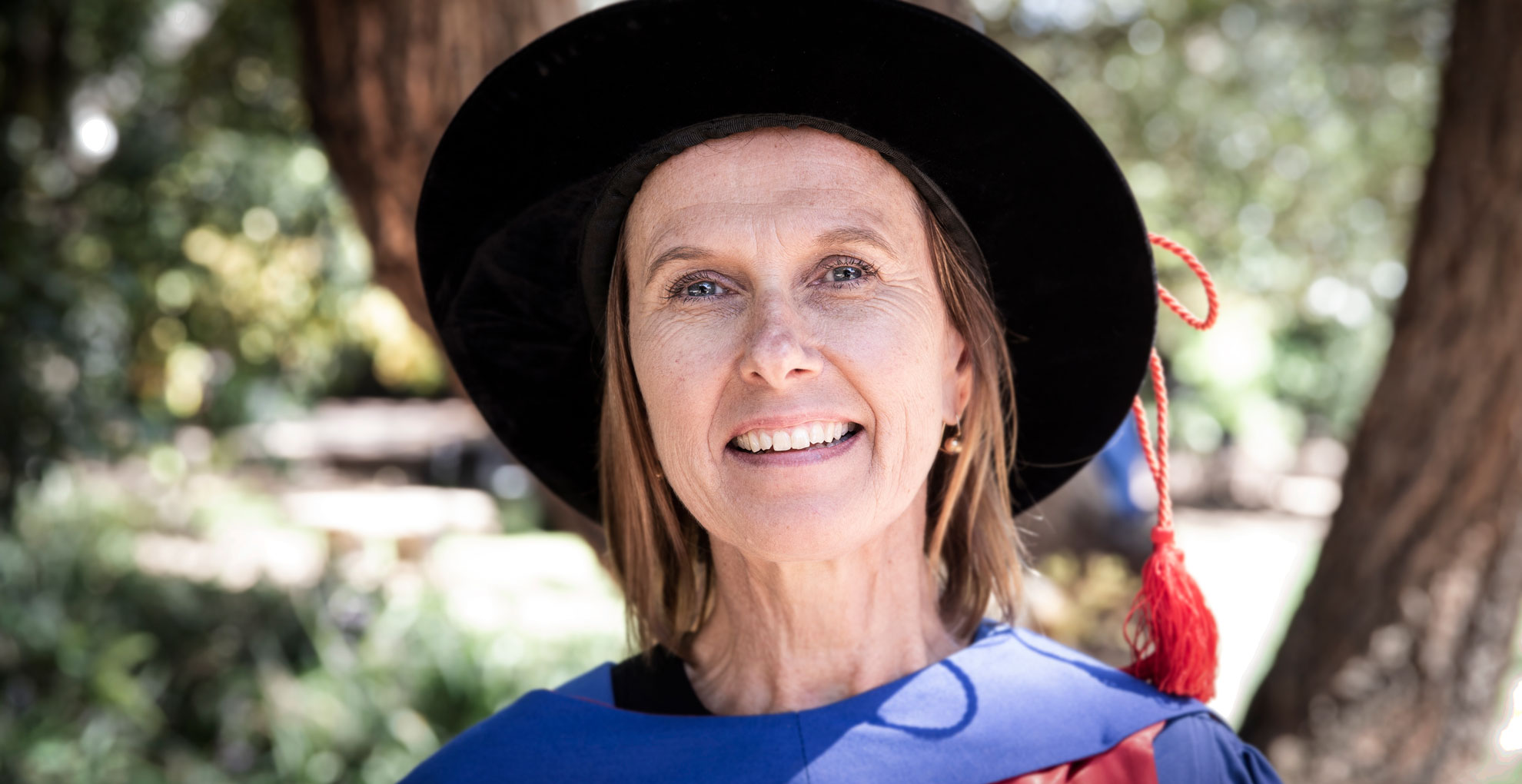November 7, 2019
PhD graduate examines how marketing influences children’s junk food habits
Dr Jennifer Norman advocating for greater government action on food advertising
You can lead a child to junk food, and they will certainly eat it, according to research conducted by Dr Jenny Norman, a PhD graduate from the Faculty of Social Science at the University of Wollongong.
Dr Norman completed her doctorate, Sustained Impact of Unhealthy Food Advertising on Children’s Dietary Intake in December last year, and her findings have already been cited globally and featured on Australia’s prime time news networks.
“I have a background in nutrition and dietetics, and was working in community nutrition at a local non-government organisation when an opportunity came up to work with Associate Professor Bridget Kelly in the University’s Faculty of Social Science,” said Dr Norman, who celebrated her graduation today (Thursday 7 November).
The opportunity was to join a team of researchers studying how food advertising affects the consumption of food by children.
“Even though there is evidence from all round the world that junk food advertising negatively affects children’s eating behaviours, children in Australia continue to be exposed to junk food ads across all media, every day,” Dr Norman said.
“In order to advocate for government action to protect children, research from longer term studies was needed to understand how food advertising may be linked with childhood obesity. Basically, we can’t influence the eating patterns of children until we get the food environment right and this was an interesting area of research into food marketing.
“With every study you build on the research done before. There was a lot of evidence that advertising affects what children eat, but there was a gap in the evidence concerning whether they ate less at later meals where they snacked on junk food after being shown advertising.”
The study team recruited 160 children aged between 7-12 years who then attended school holiday camps at the University of Wollongong. During their camp period, children were exposed to three days of junk food advertising and three days of non-food related advertising in a cartoon and online game. Each day researchers measured what the children ate as a snack after seeing the advertising and at a lunch meal later in the day.
The results showed that children ate more at the snack break after food advertising compared with non-food advertising, but didn’t make up for this increased food intake by eating less lunch on those days.
This meant that overall, children left the camp on the days they were shown junk food advertising having eaten about 200 kilojoules more than they did on non-food advertising days.
“This was an important finding because a positive energy gap of only 200-300 kilojoules is all that is needed to lead to unhealthy weight gain in children overtime and this was the first study to show a direct link between food advertising exposure and the likelihood of overweight in children,” Dr Norman said.
“We were able to design a real-world study using the holiday camps and the facilities at Early Start, and it also meant we could conduct a robust experiment in a natural setting. The results of the study showed that exposure to junk food advertising not only leads to eating more immediately afterwards but over time as well, which can lead to overweight and obesity.
“It is important to have robust evidence like this to inform policy and change current regulations. Our research has been cited globally, in the NSW Parliament and also in the UK Government’s obesity plan. It builds on a massive body of work.”
Last year, Dr Norman, Professor Kelly and UOW Professor Heather Yeatman were invited to give evidence to the Australian Senate Inquiry into obesity. Dr Norman has since been working with Professor Kelly on the development of a Regional Action Framework to protect children from food marketing for the WHO Western Pacific Regional Office.
“When you really start looking, you notice that junk food marketing is like wallpaper in kids’ lives. Most of us aren’t attuned to it, but now I see it everywhere,” Dr Norman said.
“What is interesting is when you compare controlling junk food marketing with tobacco advertising. In the UK, where tobacco advertising has been banned for a long time, children no longer know the names of tobacco brands. What we know is that the food industry uses similar techniques that the tobacco industry used to use and we can draw learning from that as well.
“What we are really calling on the government to do is institute what the WHO has recommended with its comprehensive framework of policy, with statutory regulations across all media. We will continue to lobby governments and encourage legislative changes.
“We hope to continue the research and continue our advocacy work to protect children from the effects of junk food advertising. “
